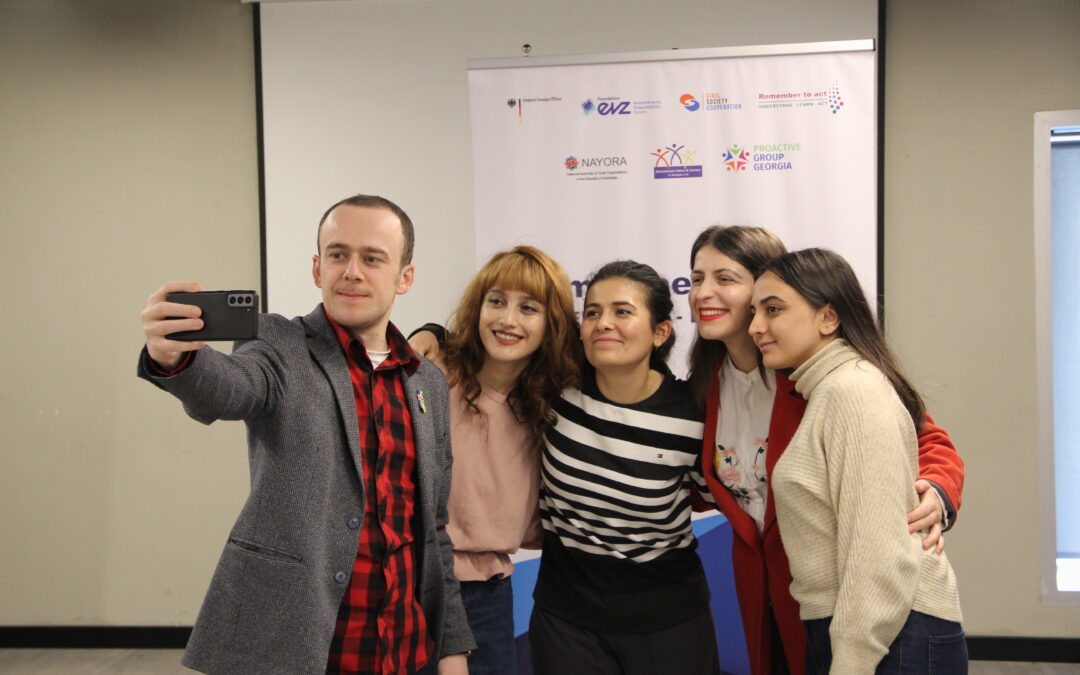By Fatima Asadova, a youth worker, Secretary of International Relations and Programme at the National Youth Council of Azerbaijan (NAYORA)
Being an organizer and a participant in the training sessions in Baku, Azerbaijan was an incredibly interesting and enriching experience for me. As a Secretary of International Relations and Programme, I was responsible for overseeing the organization and implementation of the sessions, which brought together the participants from Azerbaijan, Germany, and Georgia. Throughout the program, we explored different aspects of peace education and learned new tools and methodologies to promote peaceful resolution of conflicts. Here’s a closer look at my insights and reflections on this experience:
Overall Experience
The training sessions were well-organized, since we engaged a qualified trainer with both national and international level experience Nurana Mammadova. The participants were actively involved in group discussions and hands-on activities, making the sessions interactive and informative. The atmosphere was friendly and welcoming, which made it easy to connect with other participants and learn from their experiences.
Lessons on Peace Education
The training sessions provided valuable insights into the principles and practices of peace education. We examined different models of conflict resolution and explored various tools like Lifeline, Power of Quotation, Envelope, and Forum Theatres. Through the Lifeline session, we shared our personal experiences of conflict and discussed how we found peaceful resolutions. Walking through an exhibit of quotes about peace and writing our own quotes taught us the power of language and how we can use it to promote peace.
Surprising Aspect of the Sessions
The most surprising aspect of the training sessions was the effectiveness of the different methodologies in promoting peace. The Forum Theatre activity, for example, allowed us to enact different scenarios and explore various approaches to conflict resolution. This exercise helped us understand the perspectives of different parties and develop empathy towards others.
Interaction with Other Participating Countries
Interacting with participants from Germany and Georgia was an eye-opening experience. We learned about their cultures, customs, and practices, which helped us understand the similarities and differences in our approaches to peace education. Through this interaction, we were able to broaden our perspectives and develop a more nuanced understanding of conflict resolution. Also, after the training sessions we had the opportunity to walk around the city and take the participants to the traditional restaurants in which they explore the national dishes of Azerbaijan.
Future Initiatives
The training sessions have equipped me with the knowledge and tools to promote peace education in my community. I plan to use the methodologies I learned to organize workshops and events that foster peaceful coexistence and promote conflict resolution. I am confident that this experience will help me make a positive impact on my community.
Message about Peace
In a world that is increasingly divided and polarized, it is essential to promote peace education and conflict resolution. Through the training sessions in Baku, I learned that promoting peace is not just about resolving conflicts but also about building relationships and promoting understanding between different communities. My message about peace is that it is achievable if we work together and embrace our differences. Let us all work towards building a peaceful and harmonious world.

